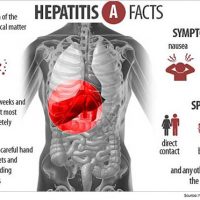
Little Rock, Ark. – The Arkansas Department of Health (ADH) continues to investigate the recent case of Hepatitis A Virus (Hep A). This is an evolving investigation, and ADH will release more information if it becomes necessary. The Clay County health units will hold special walk-in clinics over the next few days to provide vaccinations:
- Friday, February 16 from 8 a.m. to 4:30 p.m. at the Corning and Piggot locations.
- Saturday, February 17 from 10 a.m. to 2 p.m. at the Corning location.
- Sunday, February 18 from 1 to 3 p.m. at the Corning location.
- Monday, February 19 from 9 a.m. to 3 p.m. at the Corning location.
Anyone who ate at the Taco Bell in Corning, Arkansas on February 2 or February 5, 2018 is being asked to contact their health care provider or attend one of the clinics if they have never been vaccinated for Hep A. The Clay County Health Unit in Corning is located at 301 N. Missouri Ave., Corning, AR 72422. The phone number is 1-870-857-6281. The Clay County Health Unit in Piggott is located at 1009 S. Garfield Ave., Piggott, AR 72454. The phone number is 1-870-598-5719.
An employee of the Taco Bell located at 200 North Missouri Avenue, Corning, AR 72422 has tested positive for the Hep A virus. There are no specific treatments once a person gets Hep A; however, it can be prevented through vaccination or through receipt of a medicine called immune globulin. This medicine contains antibodies from other people who are immune to Hep A and works best if given within two weeks of exposure to the virus. Anyone who ate at this restaurant on February 2 or 5, 2018 should seek care immediately if they have never been vaccinated against Hep A or are unsure of their vaccine status.
Typical symptoms of Hep A include fever, fatigue, loss of appetite, nausea, vomiting, abdominal pain, dark urine, clay-colored bowel movements, joint pain, or jaundice (yellowing of the skin or eyes). Hep A is a contagious liver disease that results from infection with the Hepatitis A virus. It can range in severity from a mild illness lasting a few weeks to a severe illness lasting several months. A person can transmit the virus to others up to two weeks before and one week after symptoms appear.
People without symptoms who have eaten at this Taco Bell on February 2 or 5, 2018 and are:
- Under one year of age are too young to be vaccinated and may wish to seek out immune globulin from a health care provider.
- Between one year to 40 years of age and have never been vaccinated for Hep A may wish to seek out vaccination from a health care provider. Those who are pregnant, have chronic illness or liver disease are especially encouraged to consult with their doctor.
- 41 years old and older and have never been vaccinated for Hep A may wish to seek out immune globulin. Vaccination is not known to be effective in this group post-exposure.
Risk of Hep A transmission by food handlers is typically low. As a matter of policy, restaurant employees use disposable gloves between customers and while preparing food. These behaviors have likely reduced the risk of illness to the public. At this time there is no known risk to anyone who ate at this location on any days other than February 2 or 5, 2018.
The virus can cause illness anytime from two to seven weeks after exposure. If infected, most people will develop symptoms three to four weeks after exposure.
Hep A is usually spread when a person ingests fecal matter—even in microscopic amounts—from contact with objects, food, or drinks contaminated by the feces, or stool, of an infected person. Many people, especially children, may have no symptoms. The older a person is when they get Hep A, typically the more severe symptoms they have. Almost all people who get Hep A recover completely and do not have any lasting liver damage, although they may feel sick for months.
Hepatitis A is preventable through vaccination. Hepatitis A vaccine has been recommended for school children for many years and one dose of Hep A vaccine is required for entry into kindergarten and first grade as of 2014. Most adults are likely not vaccinated, but may have been if they received vaccinations prior to traveling internationally.



